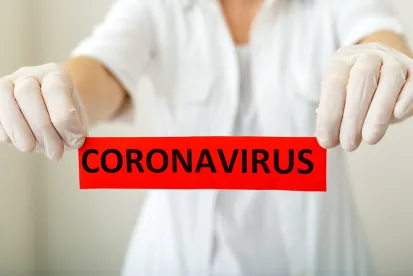On April 3, 2020 the Office of Inspector General (OIG) issued a Policy Statement to notify health care providers and other parties subject to the Anti-Kickback Statute (AKS) that the OIG will not impose administrative sanctions for potential AKS violations for COVID-19-related arrangements that are covered by some – but not all – of the Blanket Waivers of the Physician Self-Referral (Stark) Law issued on March 30 (see here for our analysis of the Blanket Waivers).
Consistent with the approach taken by other government regulators, OIG is exercising enforcement discretion to enable the health care industry to focus on delivering needed patient care during the COVID-19 emergency. According to the OIG, it will not pursue sanctions for certain financial arrangements that implicate the Physician Self-Referral Law and might otherwise implicate the AKS, if such arrangements are covered by one of the first 11 Blanket Waivers described by the Centers for Medicare and Medicaid Services in Section II.B here.
As a result, the OIG’s Policy Statement applies to certain types of remuneration between hospitals and physicians, including below-FMV rental charges for lease of space or equipment, or nonmonetary compensation or incidental medical staff benefits in excess of regulatory limits, but does not apply to all of the types of remuneration covered by the Blanket Waivers. For example, the Policy Statement does not apply to certain remuneration arrangements involving physician-owned hospitals, or referrals within group practices for certain services. However, OIG encourages parties to email the OIG with questions about the potential applicability of administrative sanctions to ‘other’ types of remuneration covered by the Blanket Waivers but not the Policy Statement.
OIG’s Policy Statement applies to conduct occurring on or after April 3, 2020, whereas the Blanket Waivers of the Physician Self-Referral Law were retroactive to March 1, 2020. The OIG Policy Statement will terminate on the same date of termination of the Blanket Waivers. OIG also reminds entities that the Policy Statement “has no bearing on arrangements that implicate the [AKS] that are not covered by the Blanket Waivers” but does state that “where an arrangement is covered by a Blanket Waiver, this Policy Statement extends to remuneration that relates to referrals for services furnished to all Federal health care program beneficiaries pursuant to the covered arrangement.” This latter concession is notable in that the reference to being covered by a Blanket Waiver is not limited to the first 11 Blanket Waivers set forth by CMS, as is the case earlier in the Policy Statement.
Health care organizations and providers would nonetheless be well-advised to closely review the Blanket Waivers and Policy Statement in tandem with counsel before moving forward with any arrangements that potentially implicate the Physician Self-Referral Law or AKS. OIG also reserves the right to reconsider the Policy Statement, and terminate or modify it, at any time.



 />i
/>i
